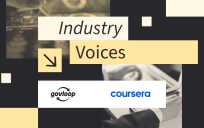Public servants are often driven by a deep sense of duty, dedicating their time and energy to serving their communities. While this commitment is admirable, the growing demands of government roles — especially in the current climate of staffing shortages, shifting workplace policies, and heightened public scrutiny — have made burnout a more serious and widespread challenge.

Left unchecked, burnout not only affects individual well-being but also undermines workplace productivity, collaboration, and morale.
This article highlights the importance of self-care and offers actionable strategies to help public servants move from burnout to balance in today’s evolving environment.
Understanding Burnout in Public Service
Burnout doesn’t happen overnight — it’s the result of prolonged stress and unaddressed challenges, often intensified by organizational and political changes.
Common causes include:
- Heavy Workloads: Managing multiple projects with limited resources due to hiring freezes or budget cuts.
- Emotional Exhaustion: Navigating heightened public expectations, scrutiny, and policy-driven changes.
- Lack of Boundaries: Balancing hybrid work environments, shifting telework policies, and an “always on” culture.
Recognizing the signs of burnout — such as fatigue, irritability, reduced performance, and feelings of detachment — is the first critical step toward recovery and prevention.
Strategies for Moving From Burnout to Balance
Prioritize Physical Health:
Your physical well-being is the foundation of overall balance. In times of staffing shortages and increased pressure, maintaining good health becomes even more critical to sustaining focus and resilience.
Action Tip: Schedule at least 30 minutes of physical activity three times a week and commit to healthy sleep and nutrition habits — even during the busiest weeks.
Set Clear Boundaries:
Government employees increasingly face blurred boundaries between work and personal life, especially with hybrid and remote work policies in flux. Establishing firm boundaries is essential for mental clarity and longevity in public service.
Action Tip: Turn off work email notifications after a designated time, create a clear separation between work and home environments, and set realistic expectations with colleagues about availability.
Incorporate Mindfulness Practices:
Mindfulness helps public servants stay present, manage stress, and remain adaptable amid uncertainty and constant change. It also fosters emotional resilience during challenging interactions or policy shifts.
Action Tip: Start or end your day with five minutes of mindful breathing, a gratitude list, or journaling to create intentional space for reflection.
Leverage Support Networks:
When workplace changes — from reorganization to new leadership directives — create uncertainty, having a strong support system becomes even more vital. Trusted peers and mentors offer perspective, encouragement, and practical advice.
Action Tip: Schedule regular informal check-ins with a colleague or mentor to share insights, challenges, and encouragement.
Take Regular Breaks:
Breaks are essential for maintaining energy and avoiding cognitive fatigue, especially as workloads increase and policy demands fluctuate.
Action Tip: Use techniques like the Pomodoro method: work for 25 minutes, then take a 5-minute break. After four cycles, take a longer restorative break.
Celebrate Small Wins:
Recognizing even small achievements is a powerful way to stay motivated during times of uncertainty and high demand. Small celebrations build momentum and reinforce a sense of progress.
Action Tip: End each day by noting one thing you accomplished, no matter how minor, and acknowledge the effort it took to get there.
Burnout is a real and growing concern in today’s government environment, but it’s not inevitable. By prioritizing physical health, setting clear boundaries, staying mindful, and leaning into support networks, public servants can restore balance, maintain their passion for service, and build a sustainable career.
Self-care isn’t just an act of personal wellness — it’s a professional strategy that enables public employees to continue delivering high-impact service while protecting their own well-being.
Commit to one small self-care action today — whether it’s taking a walk during lunch, turning off email notifications after hours, or reaching out to a trusted colleague for a check-in. Encourage your coworkers to do the same, helping create a culture where well-being is valued just as much as performance.
Marleen Greenleaf is Assistant to the CEO of Friendship Public Charter School.





Leave a Reply
You must be logged in to post a comment.